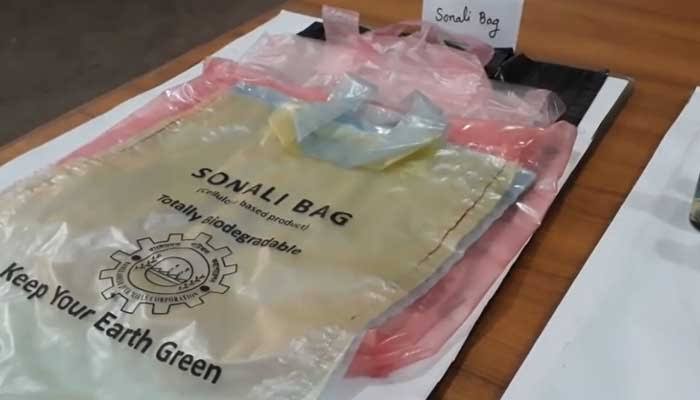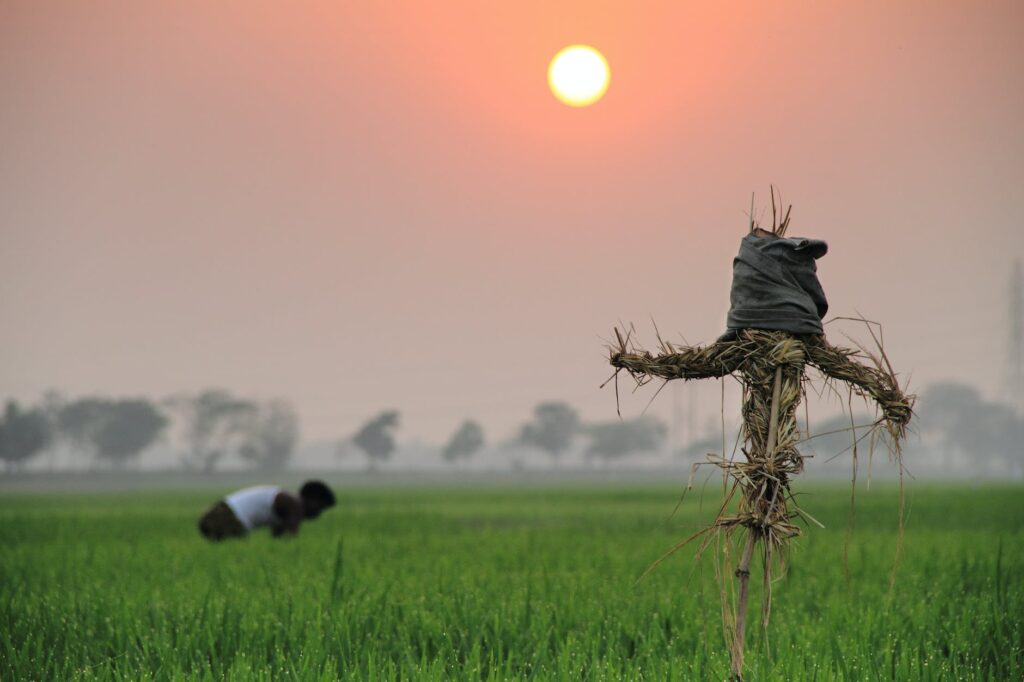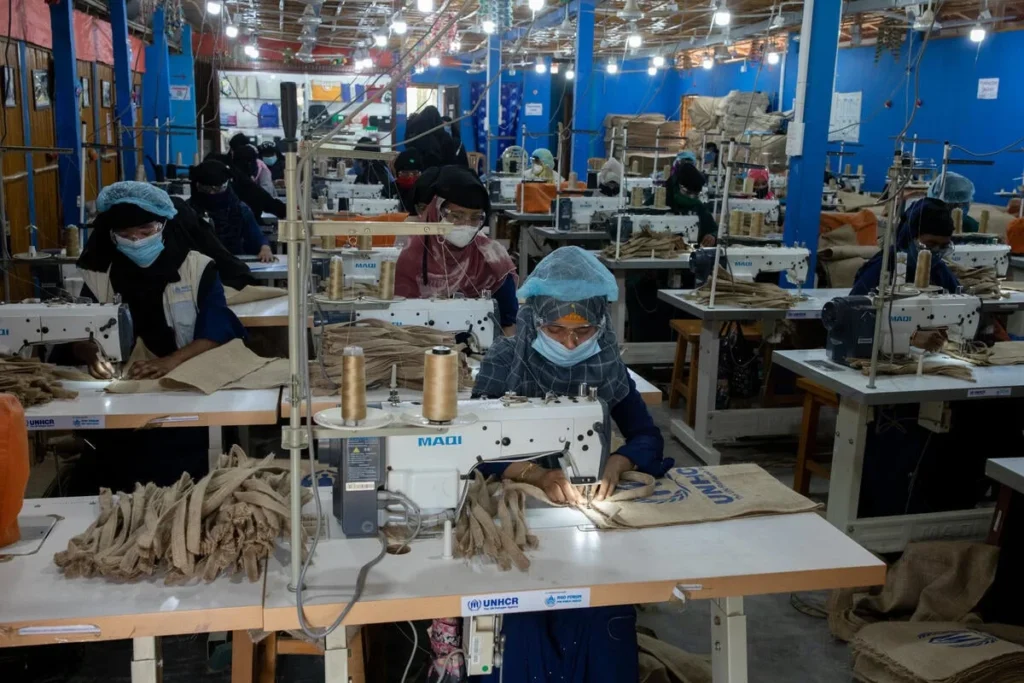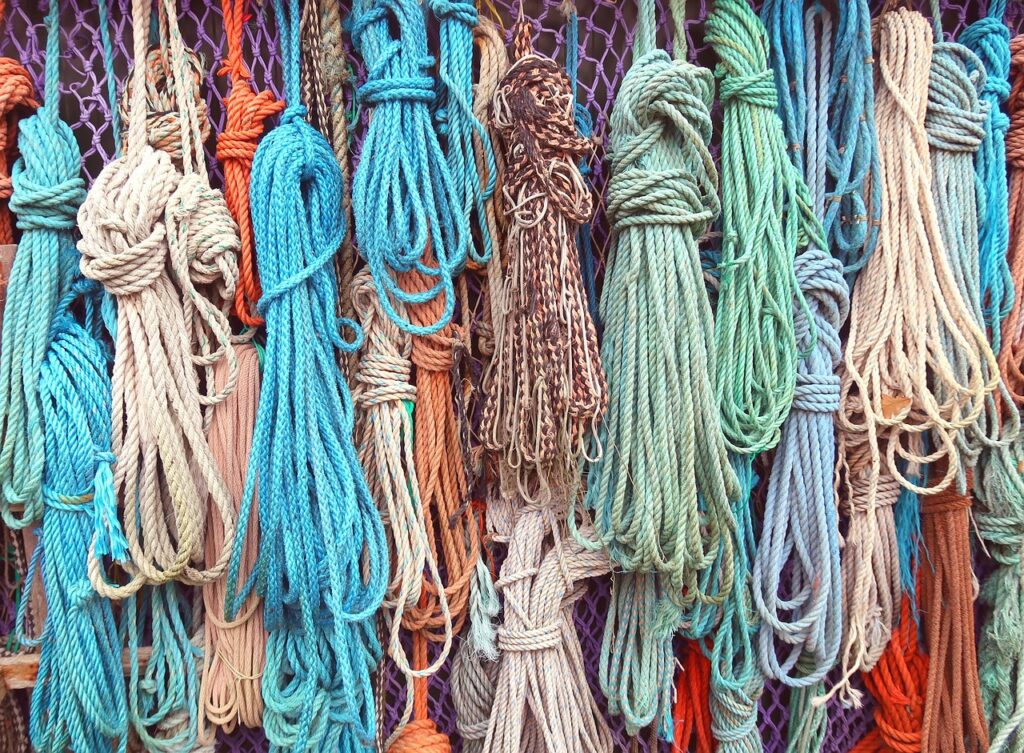Jute Bags: The Eco-Friendly Alternative to Plastic
In Bangladesh, the versatile jute plant takes centre stage as a potential eco-friendly game-changer. A breakthrough in Dhaka has given rise to a biodegradable foil made from jute cellulose, presenting an opportunity to replace disposable plastic bags with sustainable alternatives.
Enter the Sonali bag. Once touted as a revolutionary solution for tackling Bangladesh’s plastic waste, it is a project that has so far failed to make any significant headway. This post looks at the development of a fully biodegradable alternative to plastic bags using jute polymers by Bangladeshi scientist Mubarak Ahmad Khan. Although the project has stalled in recent years due to commercial viability, the development of the Sonali bag illustrates the importance of natural fibres in addressing environmental issues.
Contents
DW Documentary | Bangladesh: Could jute jump start the eco-revolution?
Bangladesh’s Environmental Pioneers
The DW video traces the development of the Sonali bag following the Government of Bangladesh imposing a blanket ban on the use of plastic bags in 2002. Scientist Mubarak Ahmed Khan of the Bangladesh Atomic Energy Commission along with others, developed the technology for using jute cellulose to develop an eco-friendly alternative to plastic bags.
Known as the “golden fibre” in Bangladesh for its shimmering appearance and economic significance to local farmers, jute offers more than meets the eye. Beyond being crafted into jute products, the plant’s leaves have found utility in culinary and beverage uses. Yet, the laborious process of jute cultivation poses challenges, as seen in the toil of farmers like Ayub Ali Akand and Afaz Uddin Akand from the Hijli village in Bogura.
Through innovative efforts by scientist Mubarak Ahmad Khan, the jute-derived biodegradable foil has given birth to the eco-conscious “Sonali Bag,” envisioned as a sustainable alternative to plastic bags. As global concern over environmental pollution grows, the potential of this natural material to combat plastic waste garners attention, posing the question: Will it triumph over the entrenched plastic industry? Could the success of eco-friendly solutions enhance the prospects of fiber farming for future generations like Ajub and Afaz’s children?

How the challenges of jute cultivation affects local farmers in Bangladesh
The challenges of jute cultivation pose significant impacts on local farmers like Ayub Ali Akand and Afaz Uddin Akand in Bangladesh. These challenges include:
1. Labor-Intensive Process
Jute cultivation involves labor-intensive tasks such as manual harvesting of jute stalks using machetes. This demanding work requires physical exertion, long hours, and skilled labor, impacting the farmers’ overall well-being.
2. Economic Uncertainty
Despite being known as the “golden fiber” and bringing modest prosperity to local farmers, the economic returns from jute farming are not always consistent. Fluctuations in market prices and the costs of cultivation can lead to financial uncertainty for farmers like Ayub and Afaz.
3. Profitability Concerns
The profitability of jute farming can be a challenge, as factors like input costs, yield variability, and market demand influence the financial outcomes for farmers. Unpredictable factors such as weather conditions and pests can also affect the success of jute cultivation.
4. Sustainability and Environment
Sustainable cultivation practices are essential for jute farming, as the environmental impact of chemical fertilizers and pesticides can affect soil health and water quality. Balancing the need for high yields with sustainable agricultural methods is a challenge for farmers aiming to protect the environment.
5. Market Competition
In a competitive global market, jute farmers in Bangladesh face challenges from other fiber producers and synthetic materials. The need to differentiate jute products and innovate to stay competitive adds pressure on farmers like Ayub Ali Akand and Afaz Uddin Akand to adapt to changing market dynamics.Overall, the challenges of jute cultivation impact local farmers by influencing their livelihoods, economic stability, sustainability practices, and ability to compete in the market, requiring resilience, innovation, and support to overcome these obstacles.
Our Experience
Eco-friendly solutions, environmental awareness and conservation are part of our core beliefs at MASK Associates. Our company slogan “Green Biz & Green Entity” is testament to our long-standing commitment to these principles. Find out more about what we do on our website.
MASK Associates is a leading exporter of top-tier jute and jute-based products from Bangladesh. Our commitment to excellence, innovation, and technology guarantees superior jute sourced from premier fibres globally.



